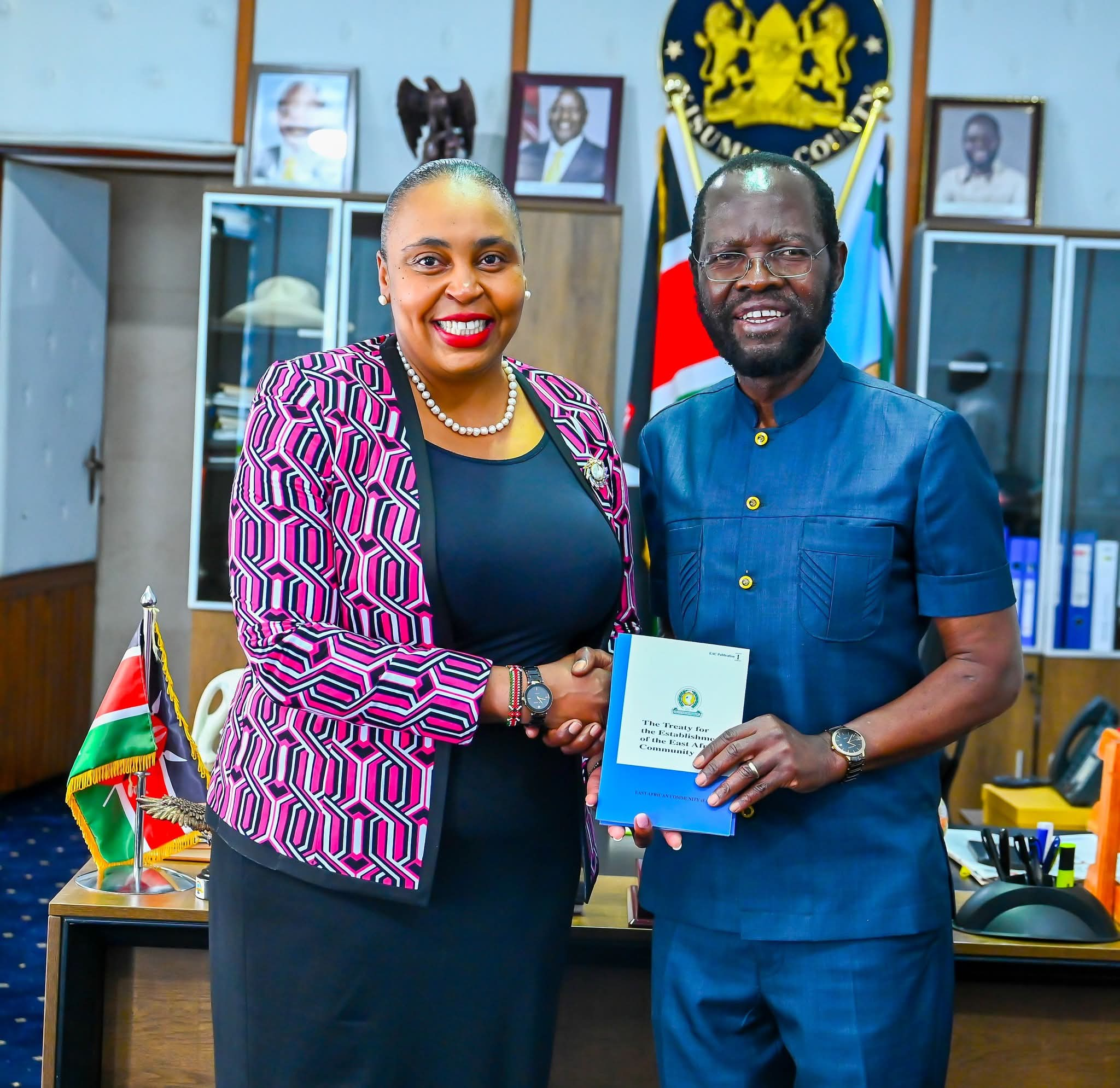

The government will establish Jumuiya Market in Kisumu County, a flagship initiative aimed at strengthening cross-border trade within the East African Community and positioning Kisumu as the gateway to regional commerce.
The initiative is designed to connect local traders to the EAC’s 130 million consumers and expand Kenya’s footprint within the region’s fast-growing markets.
East African Community Affairs Principal Secretary Carolyn Karugu said the EAC currently accounts for 29 per cent of Kenya’s total trade, making it the country’s largest trading bloc.
Speaking during a courtesy call on Kisumu Governor Anyang’ Nyong’o, she said the goal is to widen this trade space.
“We want to shift our focus from far-off markets like China and Europe to our immediate neighbours in East Africa, where opportunity abounds,” she said.
The project has entered its first phase, involving a feasibility and market assessment study to identify promising products, trade volumes, and target destinations across the region.
“We are starting a comprehensive study that should be complete within a month. It will guide the next steps and ensure we build on existing efforts,” Karugu said.
Kisumu was selected as the pilot site for its strategic location and connectivity via road, air, and Lake Victoria, linking it directly to Uganda and Tanzania.
“Kisumu is not just central; it’s dynamic. With its transport links and trade history, it has the potential to become the Dubai of East Africa,” she added.
Karugu said the Jumuiya Market will work in tandem with Kisumu’s County Aggregation and Industrial Parks to support value addition and the export of locally processed products.The initiative will also focus on building traders’ capacity by offering training on cross-border trade procedures, including EAC protocols, rules of origin, and market regulations.
Traders identified through the programme will benefit from exposure visits to regional capitals such as Kigali, Dar es Salaam, and Kinshasa to forge partnerships and learn from existing trade models.
“We want our traders to not only participate in regional trade but also to innovate, developing products tailored to specific markets,” the PS said.
The broader vision includes rolling out similar markets in the remaining 46 counties, using lessons learned from the Kisumu pilot.
Karugu revealed that the state is also planning to establish trade accelerator hubs in major East African cities, including one in Kisumu, to support Kenyan businesses expanding across borders.
While no new market structures are planned for now, the feasibility study will explore whether existing spaces such as Kibuye, Uhuru, or Jubilee markets can accommodate Jumuiya operations.
“We don’t want to build where we can optimise what already exists. The data will guide us on whether to revamp or integrate with current market infrastructure,” she said.
Access to finance will be a key pillar of the project, with the government engaging banks, telecommunications firms, and other financial players to develop tailored credit products for traders.
“We’re also considering government-backed tools like the Hustler Fund. We understand capital is critical, and we’ll reveal our financial partners once this initial phase is complete,” Karugu said.
Governor Nyong’o welcomed the move, saying it aligns with Kisumu’s vision to become a regional trade hub and reaffirmed the county’s support for the project.
“This visit lays the groundwork for an in-depth study of trade flows in Kisumu. It is a strategic step in realising the Jumuiya Market vision,” he said.
“Markets like Kibuye and Uhuru are the heartbeat of our economy. For regional integration to succeed, it must be anchored in how these local markets operate.”













